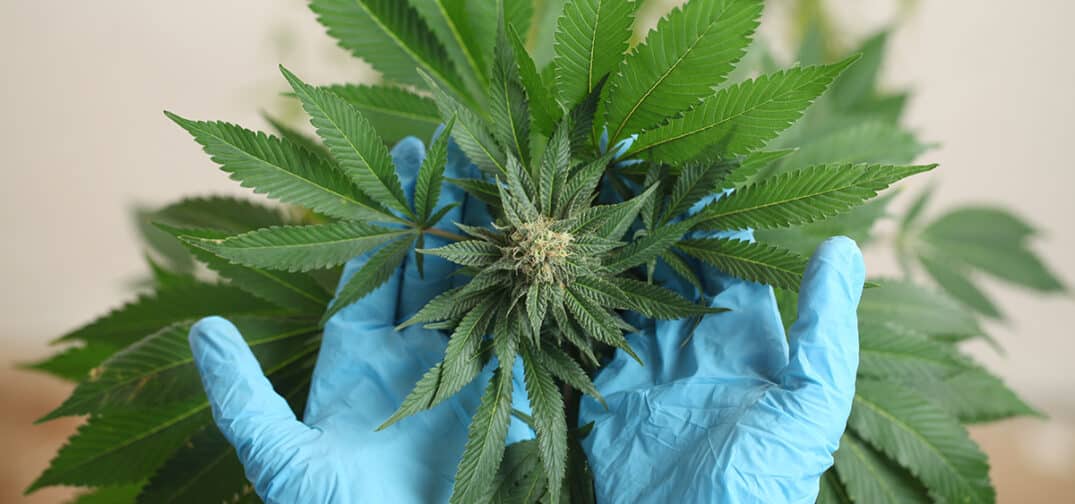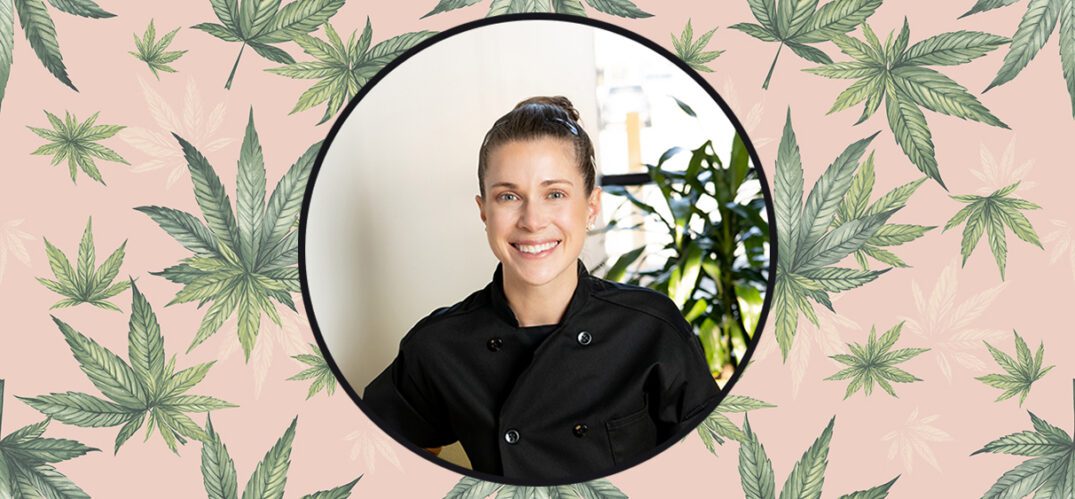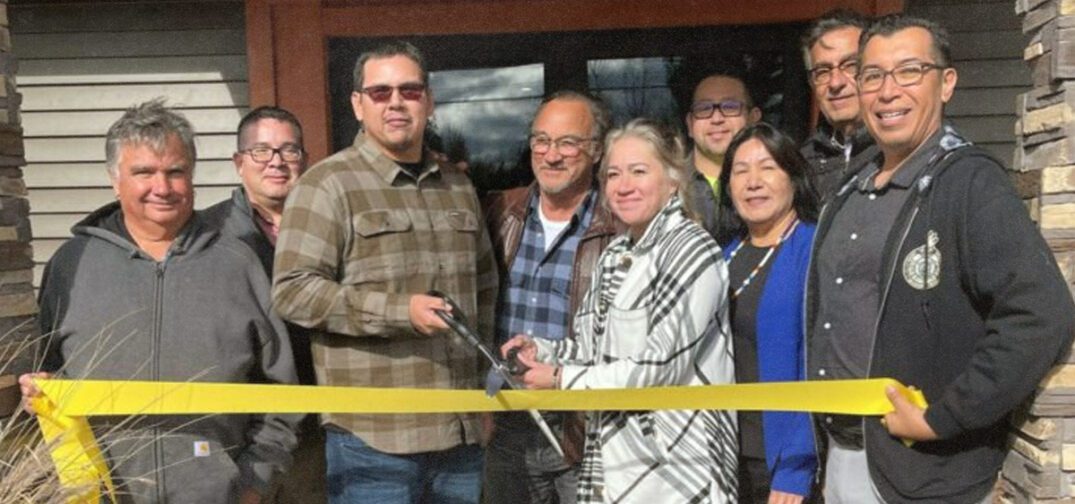LEUNE is a California-based cannabis company that has expanded into Arizona and Maine since its launch. The lifestyle company was founded by Nidhi Lucky Handa, a former celebrity talent manager, and a luxury brand communications expert. LEUNE brands and sells packaged cannabis flower, one-time-use vape pens, and rosin gummies.
In this written interview, Nidhi breaks down the reasoning behind LEUNE’s branding and market expansion, how they source their products, the quality control that goes into sourcing and branding the company’s consumer packaged goods across multiple states, and more.
Scroll on to read the full interview!
Ganjapreneur: What have you enjoyed about starting a business? Alternatively, what are the hard parts of entrepreneurship that can be glossed over?
Nidhi Lucky Handa: Great question – much of the time founder life creates tunnel vision and laser focus on moving forward, so it’s nice to pause and reflect on the highs as well as the…challenges!
The parts I love are so easy to see in the rear view – building a team, a culture, getting the big ideas from paper to production, celebrating the smallest of victories – but the reality is, I’m learning now that the best parts are actually in the process, in the now. I feel so immensely grateful to have a business in this dynamic industry and to have the opportunity to tell the stories that are important to me with a team I adore and learn from everyday.
The harder parts are the ones you’d expect – making choices that are in the best interest of the company even when they’re at the expense of a part of the vision. It’s a constant pivoting exercise running a business in an emerging industry and that means (sometimes) letting go of the passion projects or putting them on ice for a later time.
When you couldn’t find adult-use products catered to women on dispensary shelves, you identified a gap in the market and decided to create LEUNE. How do you believe LEUNE has filled this gap, and how does its branding and marketing advance this concept?
I was (and still am) less interested in gender and more interested in building something for a consumer (like me and my peer group) who is excited about legal weed, but isn’t/wasn’t being spoken to. I wanted to build something that was aesthetic and stylish, well-priced and high on quality – that’s where LEUNE was born.
We’ve been thoughtful about everything from consumer arc to buying habits. We’ve paid close attention to the consumers who want to initially just dip their toe in the pond but quickly convert to regular customers – we’ve listened closely to what makes folks stick around and what makes them leave.
I’ve put a strong emphasis on the creative spirit at LEUNE because that’s what resonates with me as a consumer. Our campaigns are ethereal, beautiful and relatable all at the same time.
What branding components signal to the ideal cannabis consumer that LEUNE products are for them? How else does the brand engage the consumer in the retail store?
That’s a good question- I believe that consumers who are drawn to LEUNE branding are attracted to the clean, modern, color-blocked aesthetic and simple overall architecture of the brand.
What attracted LEUNE to Maine as you expanded into new markets?
Maine is close to my heart as a Massachusetts native. I spent many a summer holiday in Portland growing up. The food and craft culture are all in such perfect alignment with who we are as a brand – small, unique, happily in our own skin. We were thrilled when the stars aligned and the opportunity presented itself. I love shopping the dispensaries in Maine and soaking in the passion for the plant that the local market clearly hones in on.
Did LEUNE complete any market research before releasing products in Maine? What research tools or resources were helpful during the expansion?
Yes, of course! We do so for every market. We look carefully at existing brand presence, product assortment, price points and quality. In order to build out a plan and product assortment that fits well for the market in question we do extensive research. In terms of tools, we talk to experts in the market, visit stores and go through retail menus – it’s the most accurate and up to date way to get this kind of data – albeit very time consuming.
What is Honestly Grown, and what moved the team to create the publication?
Honestly Grown is LEUNE’s quarterly lifestyle magazine. It focuses on raising the bar surrounding the conversation on cannabis. With activism and social justice at its forefront, Honestly Grown aims to bring awareness to the reader through interviews, anecdotal submissions, art and education.
We were inspired to create a magazine because we wanted to use our creative resources to highlight the importance of social justice in cannabis, such a s restorative justice for those still currently incarcerated for nonviolent cannabis crimes. We are also aiming to destigmatize conversations around cannabis and promote conversations that normalize the plant in every way.
Why did the brand choose to expand its product offerings, and what dictated that the new product would be a gummy candy?
From inception it was always clear to me that LEUNE would be vertical agnostic – even at launch with four SKUs, it was two all-in-one vapes and two pre-rolls.
We are proudly a consumer-first brand – and in an industry that is so young and constantly evolving, we want to listen to the consumer and understand what, why, where and how often they want to consume. In order to do that, we have to give them choice and pay attention to the evolving use-case of different form factors.
As for the gummies – those took the most R+D, time and iteration to get right, and I couldn’t be prouder. Rosin, gluten free, vegan, taste GREAT…they check all the boxes of a discerning consumer.
Who is your manufacturing partner in California? How do you oversee quality control using an offsite manufacturing facility?
We’ve worked with over a dozen facilities across the state to ensure LEUNE products stay on the shelf! We’ve learned so much about the importance of super buttoned up, specific SOPs and rigorous QA/QC check-ins over the years. It’s essential that brands stay vigilant and particular about the consistency of the products to ensure that customers have a great experience again and again.
How do you manage quality control as you’ve expanded into new markets? Can a consumer expect the same quality pre-roll from a California and Arizona dispensary?
As a brand this is of utmost concern and care. We vet our partners through-and-through.
Does LEUNE use sales teams, software, or a combination of the two to reach its retail partners?
It looks a little different in every market. Here in CA, LEUNE products are distributed and sold by a full service distributor. With that relationship we have access to a robust team of professionals throughout the state who can reach all corners of California.
When a new store puts in an order, does the brand educate retail staff before the products hit shelves?
ABSOLUTELY! Education (at every level) is the most important part of sales in my opinion! Ensuring that the budtenders are able to speak to the UVP of the brand is essential to strong sell through and retention.
What types of cannabis products do you think will gain popularity among California consumers in the coming year, and why?
ROSIN GUMMIES! Consumers are starting to learn the benefits of rosin in edibles – no more distillate hangover for starters. It’s a game changer and once you try a better quality product (like LEUNE Gem Drops) it’s impossible to go back.
Do you have advice for entrepreneurs interested in building a consumer-focused brand?
The cliche is true – be authentic, find a problem and fix it, know what your UVP is!
Thanks again, Nidhi, for answering our questions! Our readers can visit LEUNE.co to learn more.























